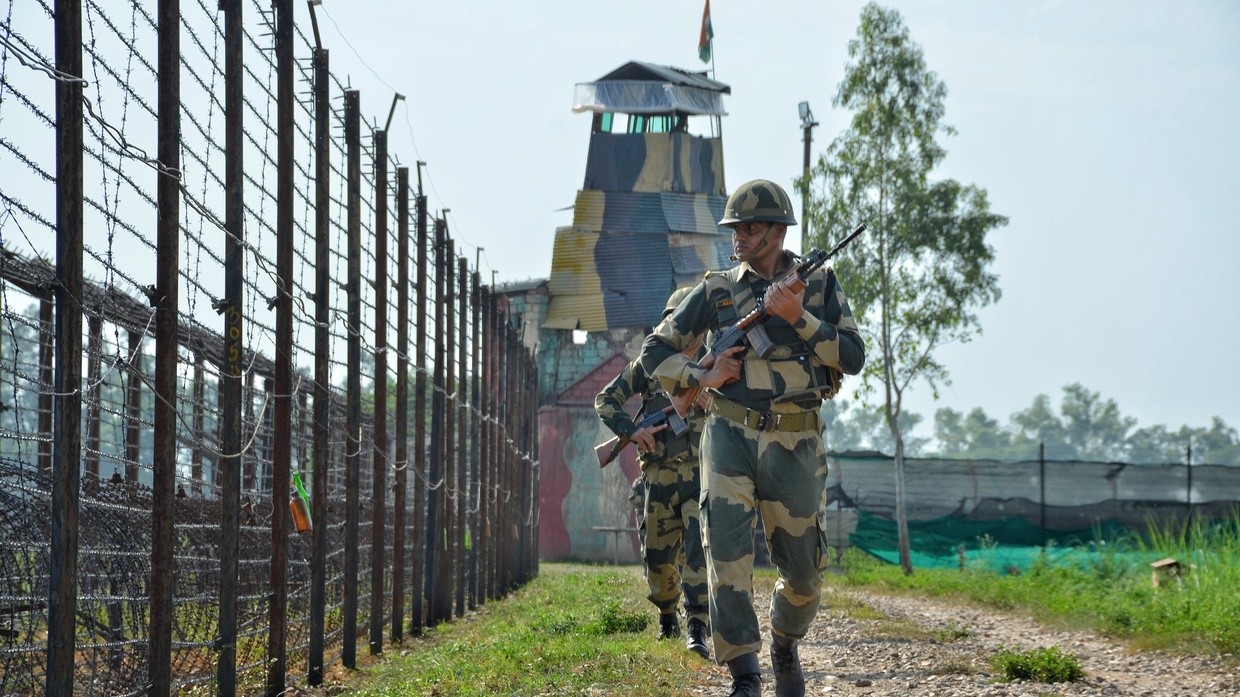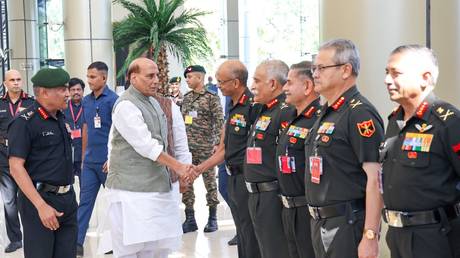New Delhi is setting up a drone surveillance system along its borders to ward off “surprise attacks,” Bloomberg reported on Friday, citing sources. The decision comes after Palestinian militant group Hamas launched a surprise attack on Israeli settlements earlier this month, killing more than 1,400 people and taking over 200 as hostages.
According to the outlet, Indian defense officials met with six local vendors of surveillance and reconnaissance drones over the past week, and an order is expected to be announced “as soon as next month.” The military is looking to have the system up and running along some parts of the frontier as early as May 2024, the sources said.
The new network, which will cost India $500 million each year, could cover all of its borders within 18 months, the report noted. The system will be made up of solar-powered High-Altitude Pseudo Satellite drones, which can operate around the clock. They can also act as radar systems, beaming images to local command centers.
Once the system is up and running, it will continuously monitor the entire 14,000 miles that make up India’s land borders and coastline.
A week ago, Indian Defense Minister Rajnath Singh told a military conference in New Delhi that the country’s armed forces should be prepared to face “unconventional and asymmetric warfare, including hybrid war” as both will feature in conflicts of the future. This should factor into the military’s planning and formulation of strategy, he warned the Indian Army’s senior leadership.
“We must keep learning from the incidents to include the global ones… in present [but] also in past. Expect the unexpected and thereby plan, strategize and prepare accordingly,” Singh said.
India has also witnessed surprise terrorist assaults similar to the one by Hamas. In 2008, the country’s financial capital Mumbai was targeted by militants from Pakistan, who carried out 12 coordinated shooting and bombing attacks over a 4-day period, killing 166 people and wounding hundreds. The attack, referred to as ‘26/11’ since it occurred on November 26, showed gaps in India’s national security ecosystem, according to experts at the Observer Research Foundation (ORF).
The situation at the borders with Pakistan and China has been an increasing source of concern for New Delhi. Last month, at least three Indian officers were killed in an encounter with radicals in Anantnag district in the Indian union territory of Jammu and Kashmir. On Thursday, Indian Army personnel reported unprovoked firing from the Pakistani side targeting its posts in the Arnia area in Kashmir. Overall, there have been more than a dozen instances of ceasefire violations since India and Pakistan signed a truce on February 25, 2021.
New Delhi’s ongoing border dispute with Beijing most recently resulted in violent clashes in 2020, killing soldiers on both sides. The two parties disengaged in the Gogra-Hot Springs border area in the western Himalayas in 2022, following extensive diplomatic and military talks, but friction remains.
Earlier this month, Indian Army officials held a 20th round of negotiations with their Chinese counterparts as part of efforts towards disengagement and de-escalation, but without any clear breakthrough.


